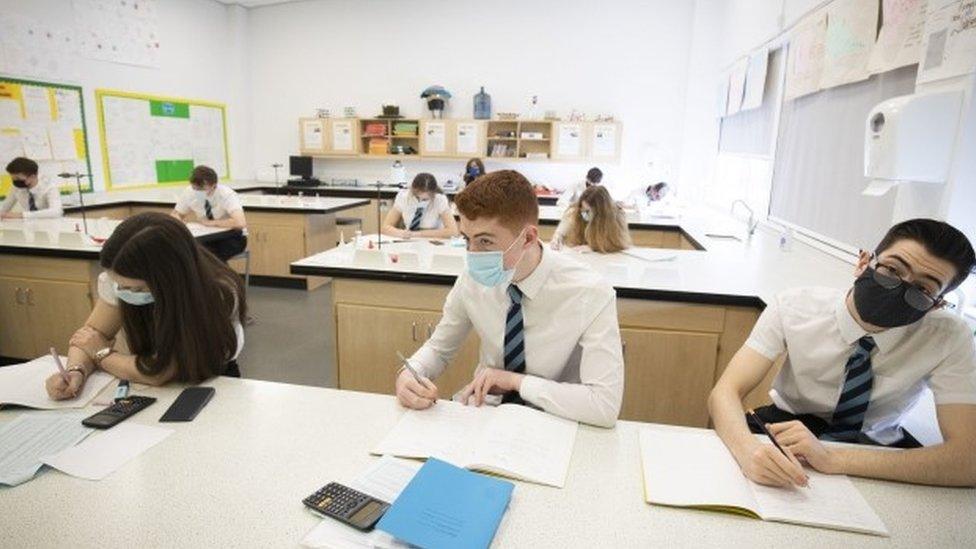Covid in Wales: Almost a quarter absent from school at end of term
- Published
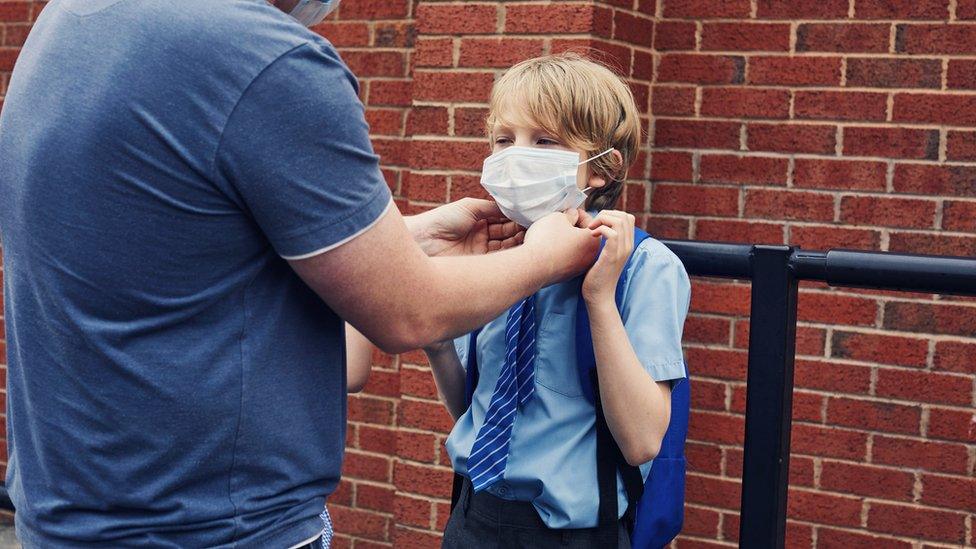
Just over 90,000 pupils in Wales were absent from school in the last full week of term, figures show
Almost a quarter of pupils in Wales - just over 90,000 - were absent from school in the last full week of term, official figures suggest.
That included 33,800 pupils (8.6%) who were not in school for Covid-related reasons between 12 and 16 July, according to Welsh government data.
Absences were more likely in secondary schools (13%) than in primary schools (6%).
The Welsh government said school was the best place for pupils to be.
But a head teachers' union warned the "huge" drop in attendance "cannot continue" into September.
Overall attendance in the latest week ranged from 68.9% in Denbighshire and 69.6% in Torfaen, up to 86.7% in Ceredigion.
The all-Wales average was 77% - down from 88.4% four weeks before, when 2.1% were off for reasons related to Covid-19.
Most Year 11 and Year 13 pupils have not been present since the end of May when they completed assessments, and no data has been available for schools in Anglesey since a cyber attack on its secondary schools in late June.
Though absences have been due to a number of reasons, there has been concern about disruption to education as a result of positive tests among school staff and pupils.
The latest data also suggested an increase in unauthorised absence in the final week of term.

'It was mentally exhausting'
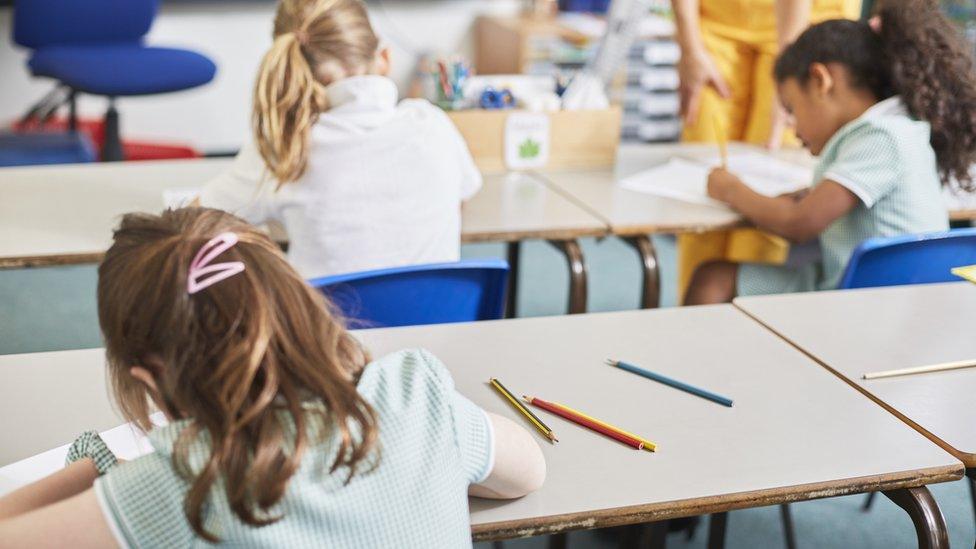
There is "a case" for under-18s not having to self-isolate if a close contact tested positive for Covid, Education Minister Jeremy Miles says
Some parents removed their children from school as the summer holidays approached, worried about having to isolate.
One mum from Cardiff told BBC Wales she decided to keep her three children - one in secondary school and two in primary - off school during the last week of term.
Maria, 42, said: "My son is in high school, so one day was an inset day, the next he had to isolate, next day he could go in - next day he had to isolate. It was so destructive.
"We were going away the first week of the holidays, so I thought it would be best to keep them off.
"They had missed enough school when they were homeschooling and being told to isolate. What's an extra couple of days going to hurt? It's my call as a parent to say 'no, I'm not going to put them in that situation'.
"You'd hear through other parents that children were isolating - in the end I thought we've just been through a pandemic, I just need to cut the nonsense, and keep them home. I felt like it was mentally exhausting me."

Positive cases have often meant wider "bubbles" or contact groups within schools also have to self-isolate.
The Welsh government has said contact groups would no longer be required for school and college pupils from September.
But the director of head teachers' union NAHT Cymru, Laura Doel, warned it must not result in more children having to self-isolate because larger numbers of pupils will be deemed close contacts.
She said: "In the last few weeks of term, schools saw a huge drop in attendance. While much of this was due to pupils isolating, there was, unfortunately, a rise in the number of confirmed and suspected Covid cases in schools too, particularly in certain areas across Wales.
"It is clear that this level of disruption cannot continue next year. However, we must look carefully at how we do this."
Education Minister Jeremy Miles has said there was "a case" for under-18s not having to self-isolate if a close contact tested positive for Covid.
Since schools reopened fully after Easter, more than 213,100 children, or 45% of all pupils, have missed more than a week of school.
Almost 56,000 (12%) of pupils have been out of class for more than a week due to a Covid-19 related reason.
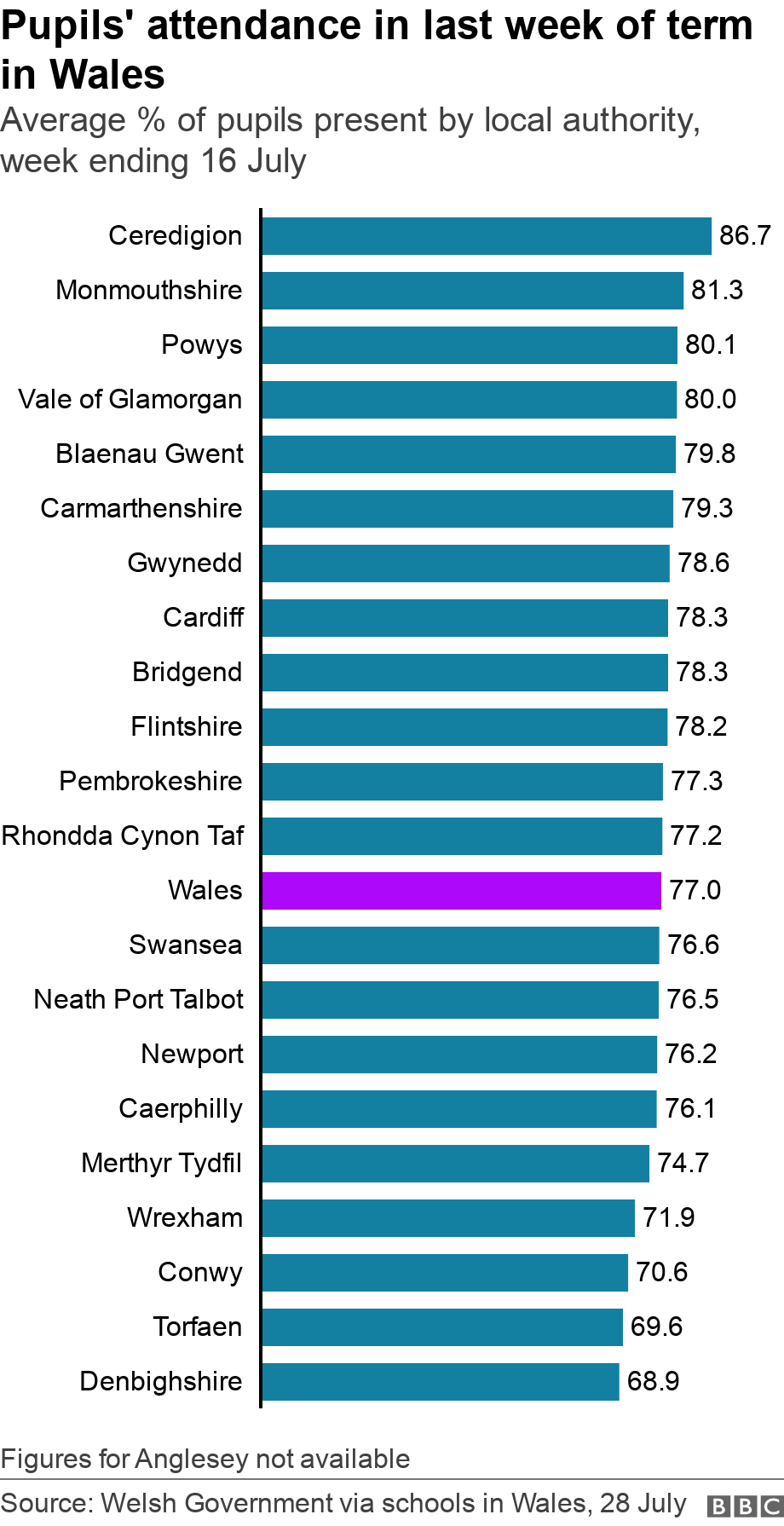

Welsh Conservative Shadow Minister for Education Laura Anne Jones said: "It is absolutely vital that Labour ministers in Cardiff Bay follow through on their plans to scrap bubbles within when youngsters return in September".
"We cannot afford to let our children miss out on any more learning," she added.
A Welsh Government spokesman said: "We know the best place for pupils to be is in school, and schools in Wales have provided a safe, secure and welcoming environment for pupils and staff.
"We continue to work with our partners to consider what further steps can be taken to make sure education continues for all children and young people, with as little disruption as possible at the start of the new school year in September."
Related topics
- Published28 May 2024

- Published16 March 2021
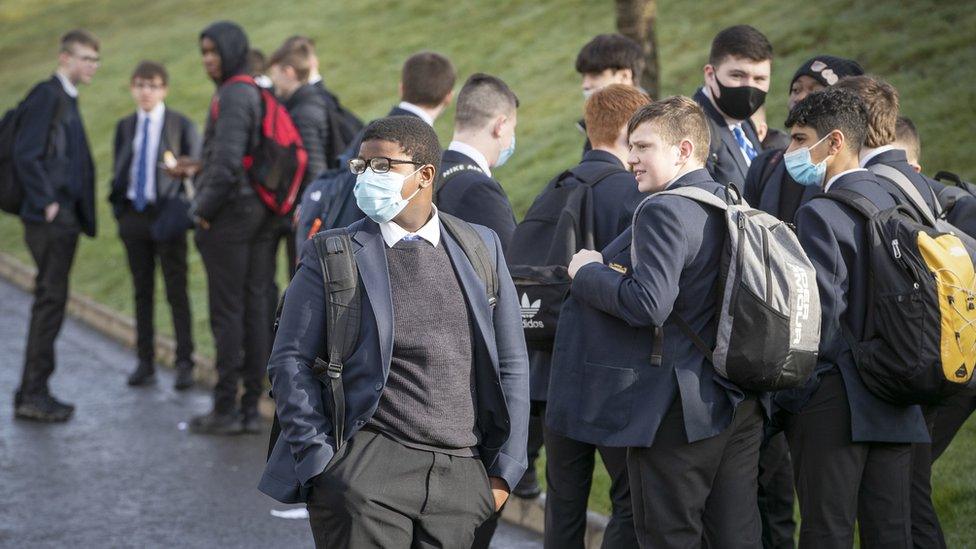
- Published6 July 2021
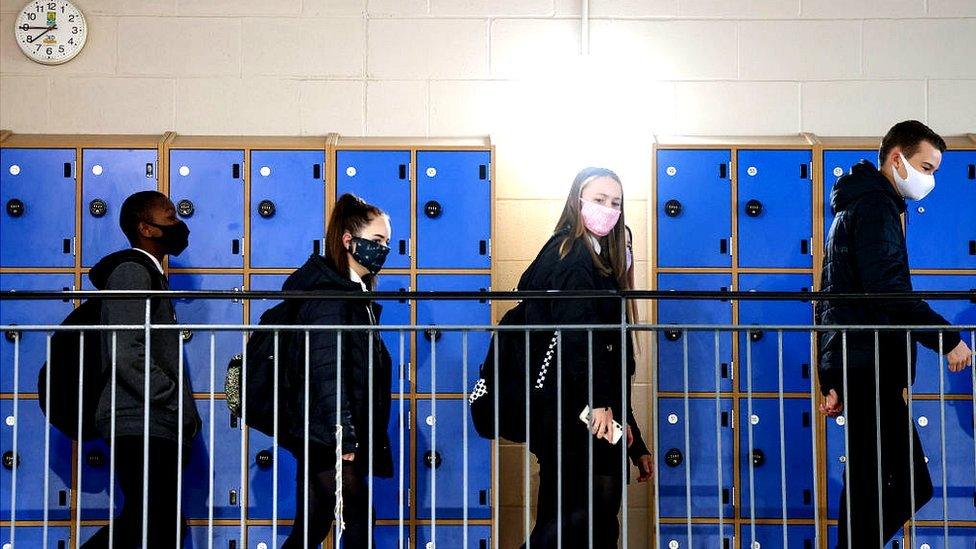
- Published28 June 2021
